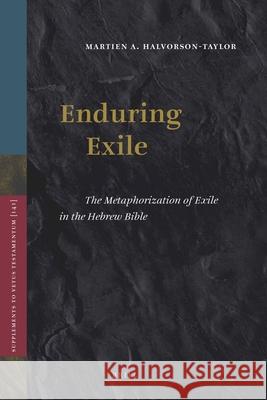Enduring Exile: The Metaphorization of Exile in the Hebrew Bible » książka
Enduring Exile: The Metaphorization of Exile in the Hebrew Bible
ISBN-13: 9789004160972 / Angielski / Twarda / 2010 / 244 str.
During the Second Temple period, the Babylonian exile came to signify not only the deportations and forced migrations of the sixth century B.C.E., but also a variety of other alienations. These alienations included political disenfranchisement, dissatisfaction with the status quo, and an existential alienation from God. Enduring Exile charts the transformation of exile from a historically bound and geographically constrained concept into a symbol for physical, mental, and spiritual distress. Beginning with preexilic materials, Halvorson-Taylor locates antecedents for the metaphorization of exile in the articulation of exile as treaty curse; continuing through the early postexilic period, she recovers an evolving concept of exile within the intricate redaction of Jeremiah's Book of Consolation (Jeremiah 30-31), Second and Third Isaiah (Isaiah 40-66), and First Zechariah (Zechariah 1-8). The formation of these works illustrates the thought, description, and exegesis that fostered the use of exile as a metaphor for problems that could not be resolved by a return to the land-- and gave rise to a powerful trope within Judaism and Christianity: the motif of the "enduring exile."











